Government marks two years in office
The Serbian government today held a special session at which Prime Minister Mirko Cvetković presented a report on the first two years of his cabinet's mandate.
Wednesday, 07.07.2010.
10:01

The Serbian government today held a special session at which Prime Minister Mirko Cvetkovic presented a report on the first two years of his cabinet's mandate. Cvetkovic said that the government had done a good job over the last two years of fulfilling the goals it set a the beginning of its mandate. Government marks two years in office Cvetkovic said that the government’s program priorities were European integration, the diplomatic fight for Kosovo, strengthening the economic and social responsibility and the fight against crime and corruption. He told a cabinet meeting in Belgrade this Wednesday that was open to the public that his government sent 470 laws to parliament to be adopted, adding that the implementation of these laws contributed to the most important reforms and introduced European rules to all segments of Serbia’s society. The prime minister stated in his report that over the last two years, the volatile, ethnically mixed south of Serbia had stabilized politically, and that European standards in the sector of environmental protection and spatial planning were implemented for the first time. He also said that the military was essentially reformed and would soon abolish compulsory service, while the security services were reformed. Cvetkovic also said that important laws were passed in the fields of agriculture, trade and consumer protection, telecommunications, traffic, culture and sport. “We can say truly today that our country has initiated most substantial regional cooperation,” Cvetkovic said. He added that the biggest problem that Serbia has faced over the last two years was Kosovo, and called on international organizations to secure peace and freedom for all according to their mandates in the province. Cvetkovic said that Serbia was dedicated to peacefully solving the problems in Kosovo with patience and without improvisations. “We have not made any moves that would endanger the security of our citizens in the southern province. Our goal is to protect our own territorial integrity and sovereignty, creating conditions for lasting stability. Kosovo and Metohija is our province, which is a UN protectorate,” Cvetkovic said. Even against "crude provocations" such as the unilateral independence declaration, Serbia has behaved and reacted as a democratic country, with the support of the UN General Assembly, and the International Court of Justice, ICJ, will soon decide whether the unilateral proclamation, made in early 2008, was in accordance with international law, he said. “Our diplomacy halted the process of the recognition of Kosovo’s independence, and managed to garner great interest from international public for the (ICJ) process in which 35 countries are participating. We expect a positive opinion of the ICJ that will be a new chance for negotiations regarding Kosov and Metohija. We want honest negotiations and a just solution that will secure lasting stability in the entire region,” Cvetkovic said. Serbia will never stop defending Kosovo, regardless of the provocations of extremists, the prime minister continued, and called on Kosovo Albanians and international officials in Kosovo not to resort to solutions that endangered rights of residents in Kosovo. “Serbia will continue to invest funds in the survival (of the Serb community) and improvement of the conditions for Serbs and all other endangered national communities in the province,” Cvetkovic said. As for the overall economic situation in the country, the prime minister noted in his report that the government had invested most of its funds and efforts in order deal with one of the greatest economic crises in modern history. “We are far from overcoming the crisis completely, but, we have removed the greatest dangers. Serbia stopped the demise of its economy, preserved the banking system, the free market and intervened with special measures in order to divide the burden of the crisis equally,” Cvetkovic said. In the last two years, the problem of crime and corruption has been solved systematically by the government, with the adoption of packages of legislative and anti-corruption laws, strengthening the state and independent institutions, and creating conditions for the work of the state auditing institution while increasing transparency of the budget spending, Cvetkovic said. “Serbia is the only country in Europe that improved its credit rating. Despite the crisis, this government did not at any moment enter into risky loans. Compared to other countries, even EU member-states, who made agreements with the IMF for loans worht EUR 30bn to 130bn, Serbia’s debt of EUR 2.6bn (sic) shows the stability of its macroeconomic policy,” Cvetkovic said. L-R: Mirko Cvetkovic, Ivica Dacic, Bozidar Djelic (Beta) Ambassadors evaluate government's performance U.S. ambassador to Serbia Mary Warlick said that the government has made much progress towards EU integration and securing a prosperous future. Evaluating the first two years of the government’s mandate, she said that the government has removed many obstacles on Serbia’s road to the European Union, which have built up over the last two decades. “Serbia is closer than ever to the European Union today, and President Tadic and the Serbian government have had a lot to do with it,” Warlick said. She said that the U.S. supports the progress in relations between Serbia and Croatia, adding that Tadic and his Croatian counterpart Ivo Josipovic are working hard to improve bilateral cooperation. She also commended the adoption of the resolution condemning the Srebrenica crimes by the Serbian parliament and the recent initiative of Belgrade to improve relations with Albania. “We want to see similar progress in relations with Kosovo. The U.S. is encouraging Belgrade and Pristina to find a channel of communication that will enable them to solve unresolved question that affect the everyday lives of the people in Kosovo,” Warlick said. British Ambassador to Serbia Stephen Wordsworth said that the Serbian government has made a lot of progress with its European integration in the last two years, but has not made any regarding Kosovo. He said that one of the most important things that the government did was the arrest of Radovan Karadzic, which sent a signal that it was determined to finish the question of war crimes. This unblocked the next phase of the European integration process, including the implementation of the interim trade agreement, the Shengen visa liberalization and the recent decision of the 27 EU member-states to begin the ratification process of the Stabilization and Association Agreement, which represents “truly significant progress”, he said. However, the diplomat added said that little has been done regarding the problems that concern Kosovo. “These two paths, the EU and Kosovo, are obviously related. With progress in integration, we in the European Union must know what Serbia is, geographically and economically, and in terms of the population. The European Union will not take on another territorially unresolved question like Cyprus,” Wordsworth was quoted.
Government marks two years in office
Cvetković said that the government’s program priorities were European integration, the diplomatic fight for Kosovo, strengthening the economic and social responsibility and the fight against crime and corruption.He told a cabinet meeting in Belgrade this Wednesday that was open to the public that his government sent 470 laws to parliament to be adopted, adding that the implementation of these laws contributed to the most important reforms and introduced European rules to all segments of Serbia’s society.
The prime minister stated in his report that over the last two years, the volatile, ethnically mixed south of Serbia had stabilized politically, and that European standards in the sector of environmental protection and spatial planning were implemented for the first time. He also said that the military was essentially reformed and would soon abolish compulsory service, while the security services were reformed.
Cvetković also said that important laws were passed in the fields of agriculture, trade and consumer protection, telecommunications, traffic, culture and sport.
“We can say truly today that our country has initiated most substantial regional cooperation,” Cvetković said.
He added that the biggest problem that Serbia has faced over the last two years was Kosovo, and called on international organizations to secure peace and freedom for all according to their mandates in the province.
Cvetković said that Serbia was dedicated to peacefully solving the problems in Kosovo with patience and without improvisations.
“We have not made any moves that would endanger the security of our citizens in the southern province. Our goal is to protect our own territorial integrity and sovereignty, creating conditions for lasting stability. Kosovo and Metohija is our province, which is a UN protectorate,” Cvetković said.
Even against "crude provocations" such as the unilateral independence declaration, Serbia has behaved and reacted as a democratic country, with the support of the UN General Assembly, and the International Court of Justice, ICJ, will soon decide whether the unilateral proclamation, made in early 2008, was in accordance with international law, he said.
“Our diplomacy halted the process of the recognition of Kosovo’s independence, and managed to garner great interest from international public for the (ICJ) process in which 35 countries are participating. We expect a positive opinion of the ICJ that will be a new chance for negotiations regarding Kosov and Metohija. We want honest negotiations and a just solution that will secure lasting stability in the entire region,” Cvetković said.
Serbia will never stop defending Kosovo, regardless of the provocations of extremists, the prime minister continued, and called on Kosovo Albanians and international officials in Kosovo not to resort to solutions that endangered rights of residents in Kosovo.
“Serbia will continue to invest funds in the survival (of the Serb community) and improvement of the conditions for Serbs and all other endangered national communities in the province,” Cvetković said.
As for the overall economic situation in the country, the prime minister noted in his report that the government had invested most of its funds and efforts in order deal with one of the greatest economic crises in modern history.
“We are far from overcoming the crisis completely, but, we have removed the greatest dangers. Serbia stopped the demise of its economy, preserved the banking system, the free market and intervened with special measures in order to divide the burden of the crisis equally,” Cvetković said.
In the last two years, the problem of crime and corruption has been solved systematically by the government, with the adoption of packages of legislative and anti-corruption laws, strengthening the state and independent institutions, and creating conditions for the work of the state auditing institution while increasing transparency of the budget spending, Cvetković said.
“Serbia is the only country in Europe that improved its credit rating. Despite the crisis, this government did not at any moment enter into risky loans. Compared to other countries, even EU member-states, who made agreements with the IMF for loans worht EUR 30bn to 130bn, Serbia’s debt of EUR 2.6bn (sic) shows the stability of its macroeconomic policy,” Cvetković said.
Ambassadors evaluate government's performance
U.S. ambassador to Serbia Mary Warlick said that the government has made much progress towards EU integration and securing a prosperous future.Evaluating the first two years of the government’s mandate, she said that the government has removed many obstacles on Serbia’s road to the European Union, which have built up over the last two decades.
“Serbia is closer than ever to the European Union today, and President Tadić and the Serbian government have had a lot to do with it,” Warlick said.
She said that the U.S. supports the progress in relations between Serbia and Croatia, adding that Tadić and his Croatian counterpart Ivo Josipović are working hard to improve bilateral cooperation.
She also commended the adoption of the resolution condemning the Srebrenica crimes by the Serbian parliament and the recent initiative of Belgrade to improve relations with Albania.
“We want to see similar progress in relations with Kosovo. The U.S. is encouraging Belgrade and Priština to find a channel of communication that will enable them to solve unresolved question that affect the everyday lives of the people in Kosovo,” Warlick said.
British Ambassador to Serbia Stephen Wordsworth said that the Serbian government has made a lot of progress with its European integration in the last two years, but has not made any regarding Kosovo.
He said that one of the most important things that the government did was the arrest of Radovan Karadžić, which sent a signal that it was determined to finish the question of war crimes.
This unblocked the next phase of the European integration process, including the implementation of the interim trade agreement, the Shengen visa liberalization and the recent decision of the 27 EU member-states to begin the ratification process of the Stabilization and Association Agreement, which represents “truly significant progress”, he said.
However, the diplomat added said that little has been done regarding the problems that concern Kosovo.
“These two paths, the EU and Kosovo, are obviously related. With progress in integration, we in the European Union must know what Serbia is, geographically and economically, and in terms of the population. The European Union will not take on another territorially unresolved question like Cyprus,” Wordsworth was quoted.










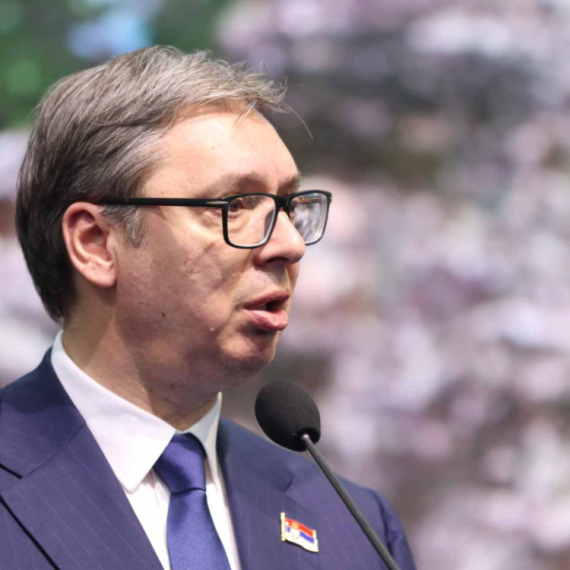

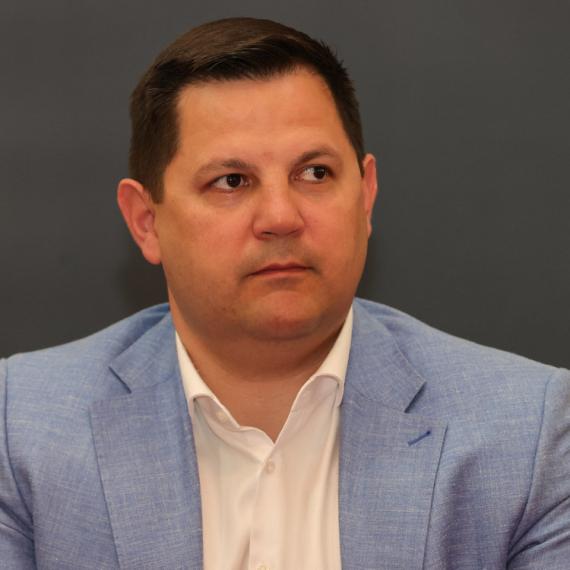
























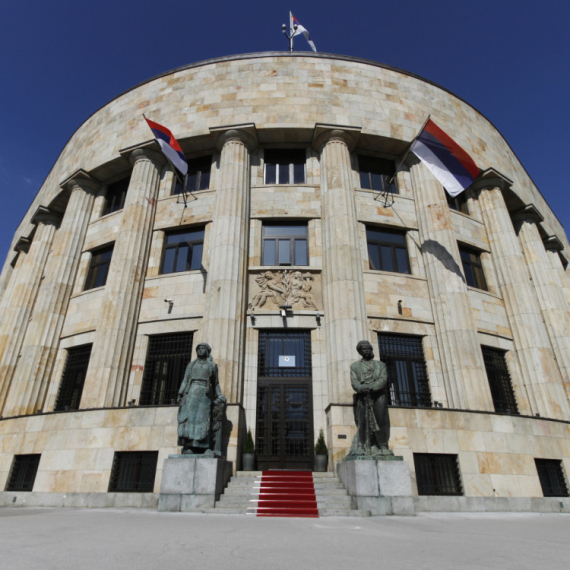

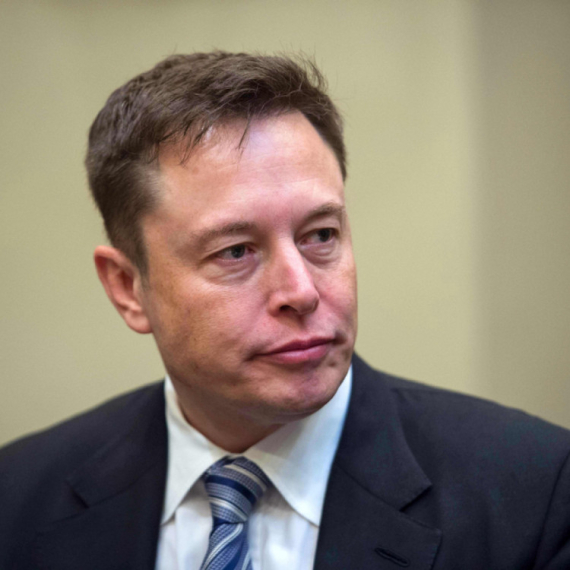












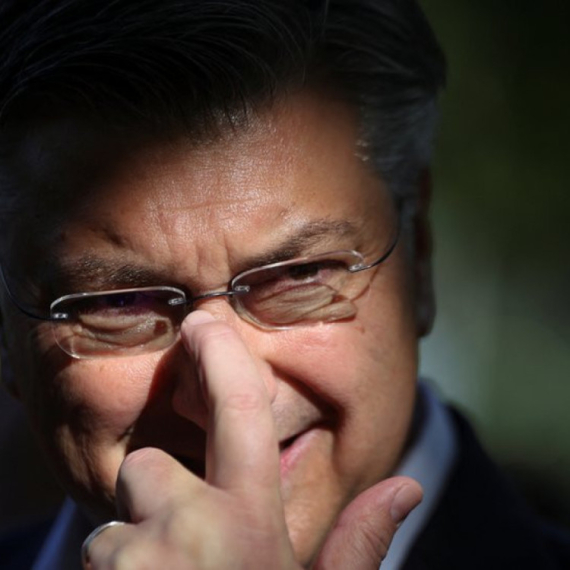
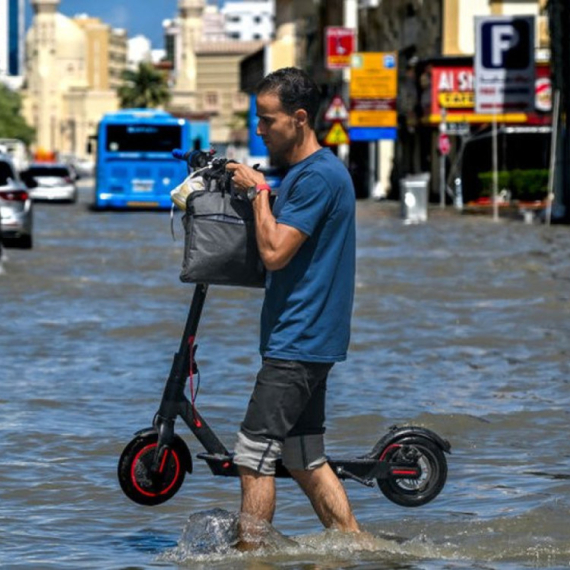



Komentari 2
Pogledaj komentare